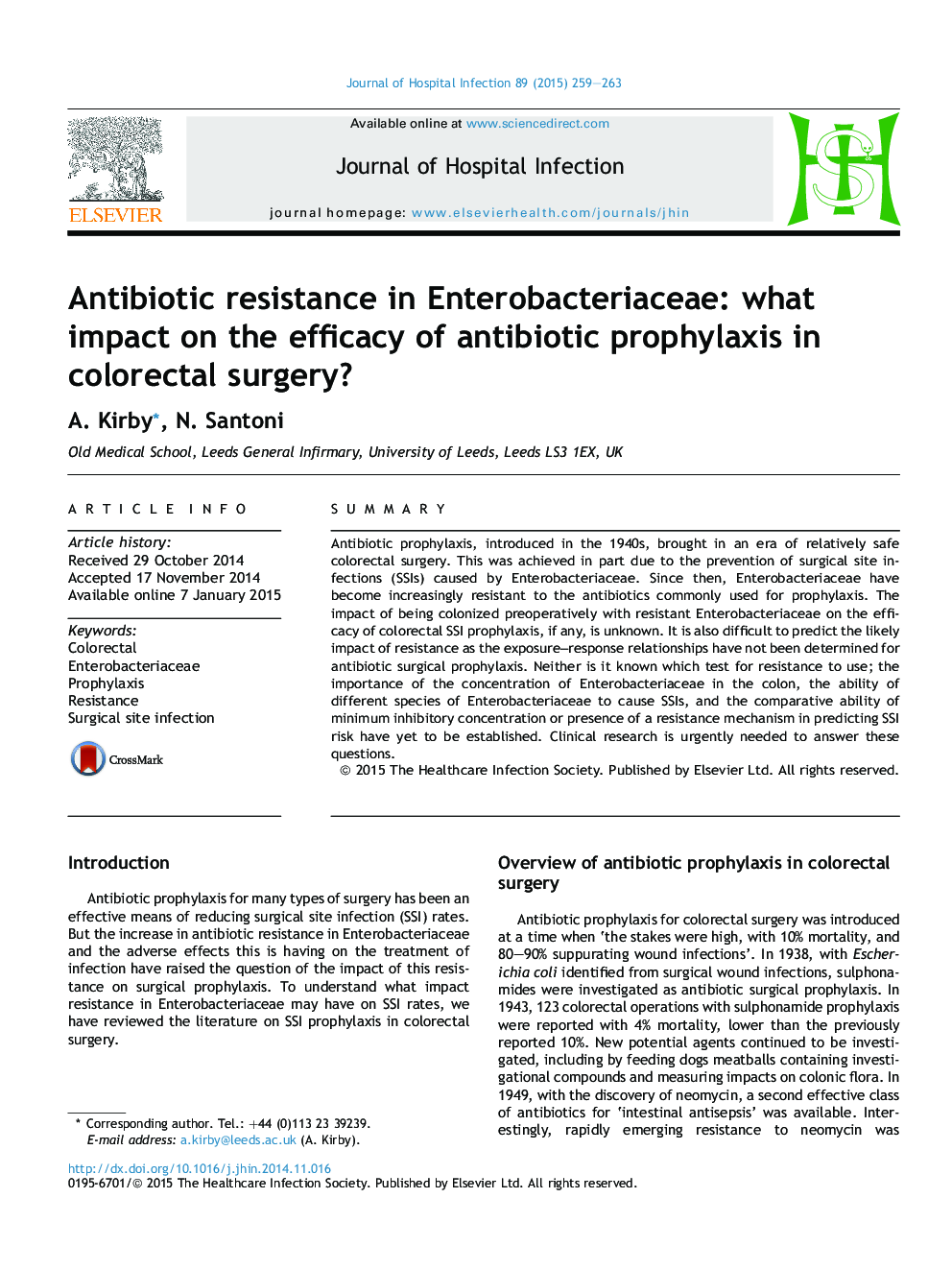| Article ID | Journal | Published Year | Pages | File Type |
|---|---|---|---|---|
| 6122097 | Journal of Hospital Infection | 2015 | 5 Pages |
Abstract
Antibiotic prophylaxis, introduced in the 1940s, brought in an era of relatively safe colorectal surgery. This was achieved in part due to the prevention of surgical site infections (SSIs) caused by Enterobacteriaceae. Since then, Enterobacteriaceae have become increasingly resistant to the antibiotics commonly used for prophylaxis. The impact of being colonized preoperatively with resistant Enterobacteriaceae on the efficacy of colorectal SSI prophylaxis, if any, is unknown. It is also difficult to predict the likely impact of resistance as the exposureâresponse relationships have not been determined for antibiotic surgical prophylaxis. Neither is it known which test for resistance to use; the importance of the concentration of Enterobacteriaceae in the colon, the ability of different species of Enterobacteriaceae to cause SSIs, and the comparative ability of minimum inhibitory concentration or presence of a resistance mechanism in predicting SSI risk have yet to be established. Clinical research is urgently needed to answer these questions.
Related Topics
Life Sciences
Immunology and Microbiology
Applied Microbiology and Biotechnology
Authors
A. Kirby, N. Santoni,
